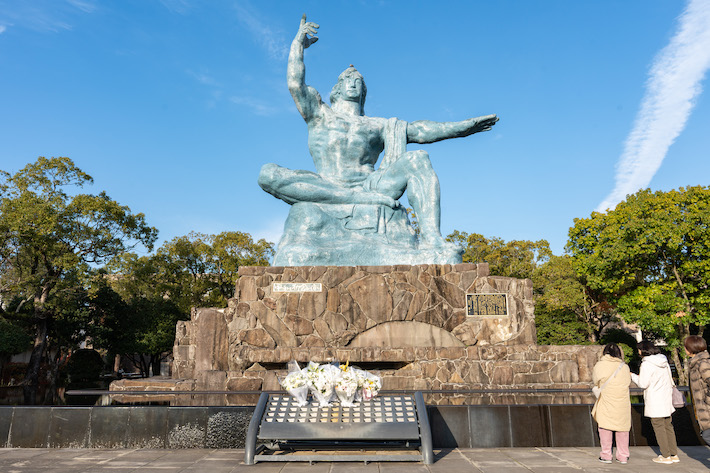Are those Black Swans circling over Beijing?
Bilahari Kausikan, the former policy adviser at the Ministry of Foreign Affairs of Singapore, is convinced they are.
In a commentary entitled China and the Breeding of Black Swans, he used the metaphor for “extremely rare and unpredictable economic events” as outlined by Nassim Taleb, the Lebanese-American essayist and scholar.
“[President] Xi Jinping is something of a Black Swan. He is a ‘princeling’ and [the Communist Party of China] is his patrimony. When the Party elders selected him as [the] new leader, they may have assumed that [he] was a safe pair of hands that could be trusted to clean up corruption, without shaking up the system too much. How wrong they were,” Kausikan, who is chairman of the Middle East Institute at the National University of Singapore, said.
“The concentration of power around Xi seems to have reintroduced something akin to a neo-Maoist single point of failure into the Chinese system, whereby a single mistake can have widespread and perhaps catastrophic results. As the Covid-19 crisis illustrates, there is reason to question the accuracy and [the] timeliness of information that is filtered upwards to decision-makers,” he wrote for Global Brief, the international affairs magazine.
Often referred to as Singapore’s “undiplomatic diplomat,” Kausikan also highlighted the trade war with the United States and the Hong Kong pro-democracy movement as further examples of failing to expect the unexpected.
“China seems to have underestimated [US President Donald] Trump and was clearly caught on the back-foot by the change of attitude in the US. [Beijing] seemed to have begun to believe its own propaganda about its inevitable rise and America’s [and the West’s] inevitable and absolute decline,” he said.
“Beijing [also] clearly misread the situation [in] Hong Kong [which] encompasses complex issues of Chinese identity that have bedeviled China since the late 19th century . and identity issues could have serious implications for China’s relationships with overseas Chinese communities in Southeast Asia, Taiwan and beyond,” Kausikan added.
Last weekend, Xi warned that the Covid-19 epidemic would have a major impact on the economy, although he insisted it was “temporary” and “containable.”
Even though Beijing has moved quickly to roll out a substantial stimulus package, more liquidity will be needed to avoid the risk of country-wide layoffs. If that happened, the fallout could plunge the global economy into recession.
A survey released by the prestigious Tsinghua University and Peking University of 1,000 small- and medium-sized companies illustrated the depth of the problem as the death toll jumped to nearly 2,800 with more than 80,000 people infectedworldwide.
Just 34% of those polled revealed they could survive for a month on current cashflow projections. While the sample was small, the study was conducted by China’s two leading academic institutions.
“The employment situation is OK in the first quarter, but if the virus is not contained by the end-March, then from the second quarter, we’ll see a big round of layoffs,” Dan Wang, an analyst with the Economist Intelligence Unit, said, adding that unemployment could surge to 4.5 million.
Creating 60% of GDP growth, the private sector accounts for around 80% of urban jobs.
As part of the relief effort, banks have so far “extended loans” worth “537 billion yuan,” or US$76 billion, mostly in the past month. “This is a sizeable amount given that total net new loans last February were 886 billion yuan,” Capital Economics, a research consultancy based in London, stated in a briefing.
Included in a raft of incentives are “delayed or partially waived taxes and social security fees for affected businesses,” DBS, the multinational bank in Singapore, pointed out.
Even before the Covid-19 outbreak, unemployment had started to move in the wrong direction. Official data showed that China’s jobless rate in December was 5.2% compared to 4.9% in April 2018.
In part, that was down to trade war tensions between Washington and Beijing before a phase one deal was hammered out in the fall of last year. But the aftershocks of the coronavirus epidemic have created a new climate of uncertainty.
“Public finance should play a role in supporting enterprises’ operations. The revenues of many industries, especially the catering, tourism, transportation and film industries, have declined because of the epidemic. And, in particular, small- and medium-sized enterprises require fiscal support – even some large-scale enterprises face financial constraints,” Yang Zhiyong, of the National Academy of Economic Strategy at the Chinese Academy of Social Sciences, said.
“Moreover, since the job market is closely related to social stability, a huge number of workers cannot return to work because of the epidemic, so public funds should be used to help enterprises restart their operations. In turn, this will help stabilize the social environment and allow workers to return to work,” Yang added in a commentary for the state-run China Daily.
In the meantime, the Black Swans are circling.
























